-
Are children living outside of France obliged to look after their parents?
Both parents and children have familial obligations to financially support each other
-
Exploring Pont-Croix: officially named as France’s best tourism village
A Breton gem boasting strong cultural heritage, charming architecture and vibrant local life
-
Could I be forced to sell my house to pay fees if my spouse has to move into nursing home?
Various funding options exist that can help towards costs of residential care
French woman takes 101-year old grandmother on epic Spanish road trip
We talk to Fiona Lauriol, who took her centenarian grandmother out of the nursing home in which she was deteriorating to go on an unforgettable road trip through Spain in a camper van
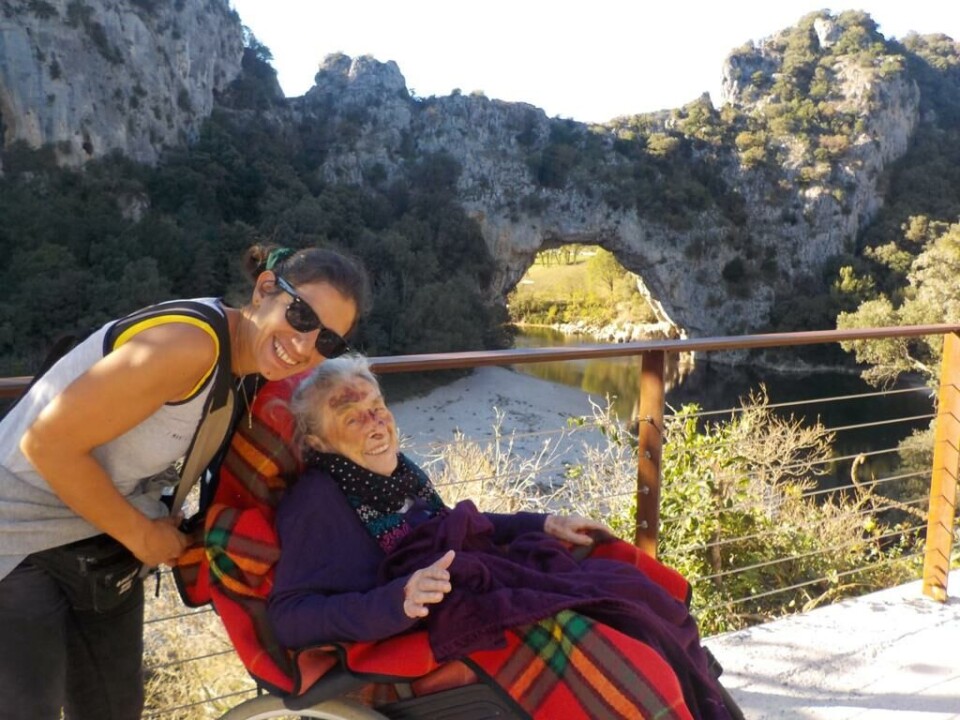
Neither Fiona Lauriol nor her grandmother’s doctor expected that life would turn out this way.
Ms Lauriol went on an eighteen-month trip in a camper van with Dominique Cavanna, her then-101-year-old Italian-born grandmother, despite the centenarian being given one week to live by doctors.
Ms Lauriol recounted their adventure in 101 Ans – Mémé part en vadrouille (101 years-old – Granny goes on a trip, Blacklephant Editions), a book which sold more than 10,000 copies and which still awaits an English translation.
The trip took them to Spain, where Ms Cavanna also experienced her first Holy Week, attended her first concert, sang with street artists in Almeria, participated in walking the Camino, basked in hot springs, and went to Portugal.
“The more we travelled, the more I realised she was coming back to life,” said Ms Lauriol, whose grandmother died peacefully during the Covid pandemic, and whose book was a tribute and parting promise to her grandmother.
The Connexion spoke with Ms Lauriol as she and her parents hit the road again in a nationwide camper van trip of nursing homes to raise awareness around old age.
The journey will end up at the Assemblée nationale around June,
Ms Lauriol’s experiences and the release of Les Fossoyeurs (see final question) having provoked the interest of the government and MPs from across the political spectrum.
What has the reaction been so far?
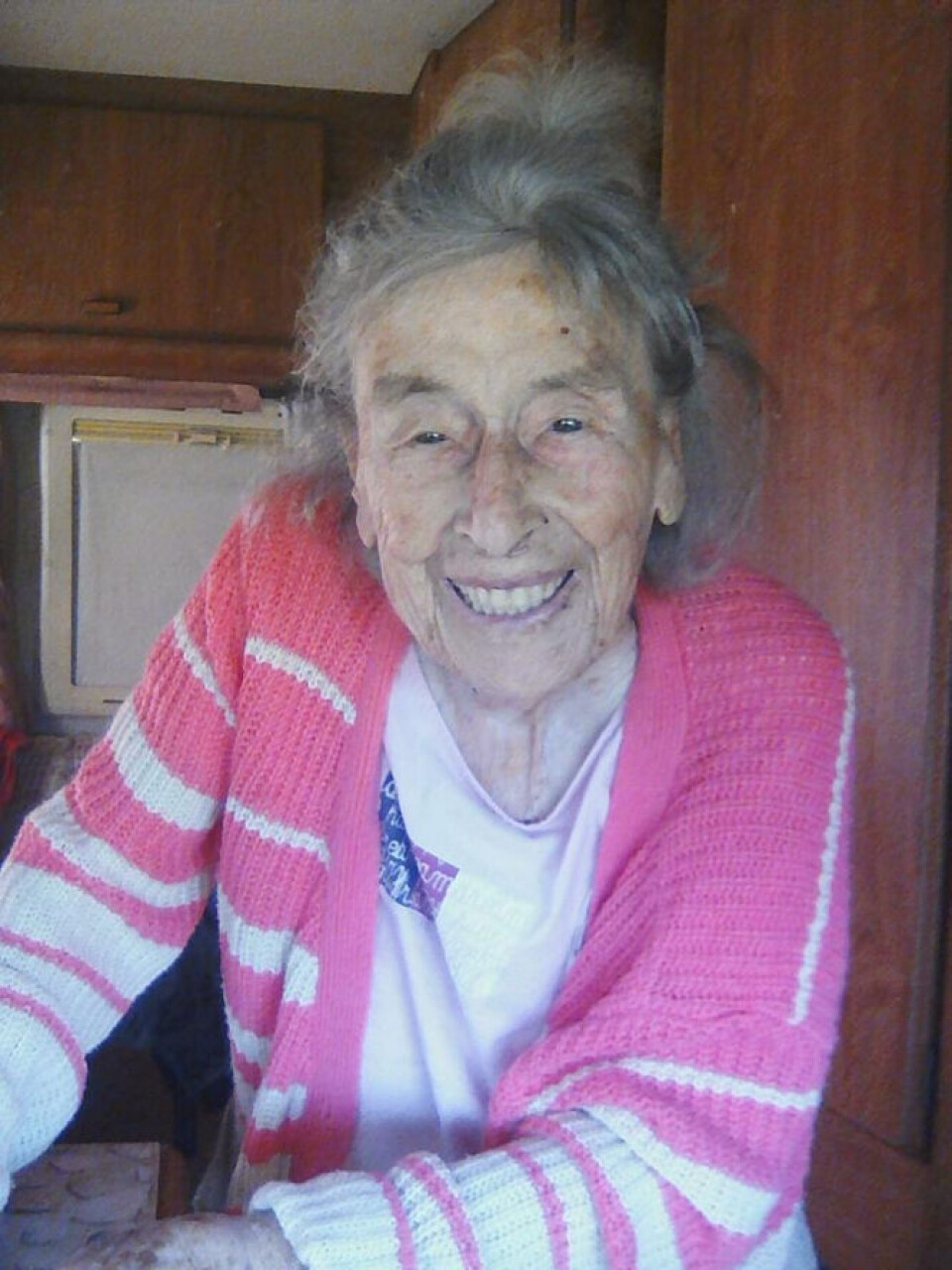
It’s very good feedback because it raises awareness and changes people’s views of old age.
Most people think that at a certain age, we no longer have the desire to live and simply wait for death.
But people still want to live their life to the fullest.
When I told young people that my grandmother saw her first concert aged 102, they began to see older people differently.
If we exclude the elderly from our society, what do we expect them to say about us if we leave them staring at an empty wall waiting for the end?
We are considered old at around 65.
Let’s say someone lives until 105, it means he or she will hear continuously for 40 years that they should be careful in case they break a bone or die.
This is not how anyone should live.
This is a reference to your grandmother’s own situation, when you spotted her in a room six months after you took her out of a care home...
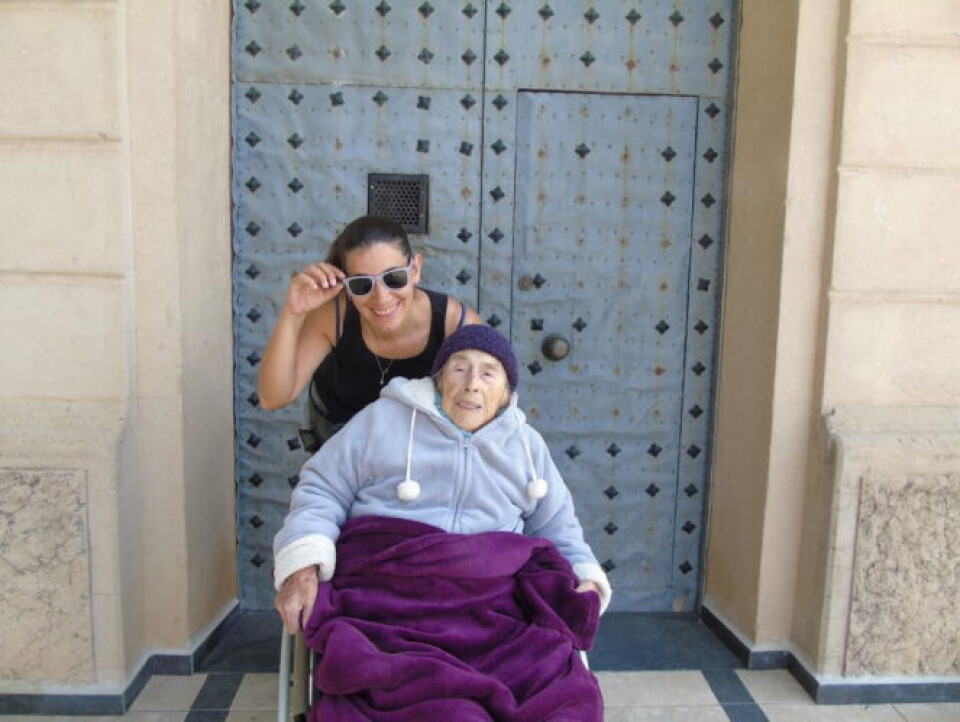
When I spotted her watching that wall with such an empty look in her eyes, it gave me the shivers.
Getting old should not resemble that.
When we decided to take her on a road trip in a camper van, my parents and I first took her on a 40-day road trip as a test.
She did not know what a camper van was, and things went horribly wrong.
She broke her nose near the Lac du Salagou and the operation required stitches.
When there was a hail storm she thought France was being bombarded again.
We never saw the Mediterranean coast, nor were we able to visit her native Italy.
When we came back, I thought she would have never wanted to go through that experience again.
Next morning, she told us: “Ok, I have slept enough. When do we start again?”
When you look at the photos from the start of the trip, she is hunchbacked and knocked out by the medication.
She was struggling to stand on her legs and had lost fifteen kilos.
As the journey went on she looked younger.
When people ask me what the miracle cure is, I tell them it’s having a perspective of the future.
Every day was different and the unexpected was part of the journey.
You have said that you did not have a good relationship with your grandmother, so why did you choose this? How did you overcome resentment?

Would I want to die alone or surrounded by my family?
I thought it would not be too complicated to accommodate her, since the doctors said she only had one week to live.
It took six months to get her back on her feet and six months to be able to leave in a camper van.
Over the first two weeks, I wondered what I had got myself into.
But with a lot of love and patience, you can do so much.
With time, we came to understand each other’s differences.
What is your take on health professionals after she defied the official diagnosis for her life expectancy?
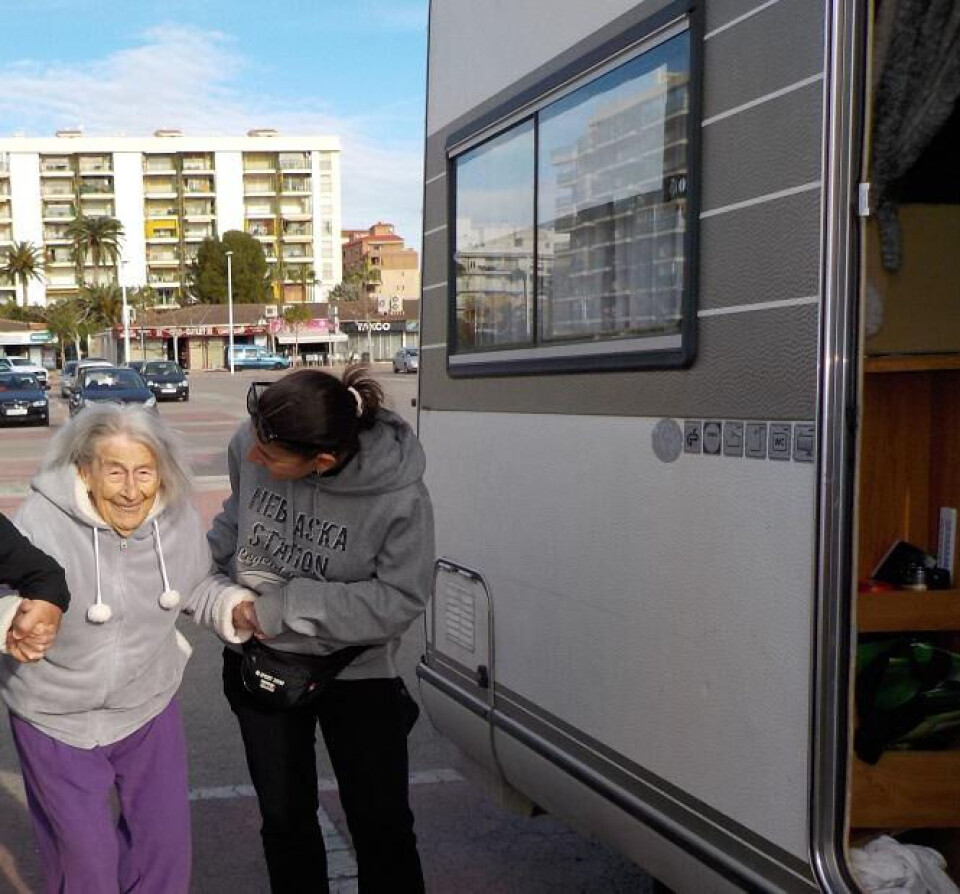
My opinion is that beyond a certain age, professionals are no longer interested.
You are told that you are old, that’s it.
I think the diagnosis indirectly takes into consideration the environment she lived in.
If I had not taken her out of the care home, she probably would have died within a week.
I think overprotection is the second reason.
The doctor advised me that if she died in my car, I would bear responsibility.
But I thought since she had one week left, my risk was very low.
So you think this overprotection is what leads them inevitably towards… Death.
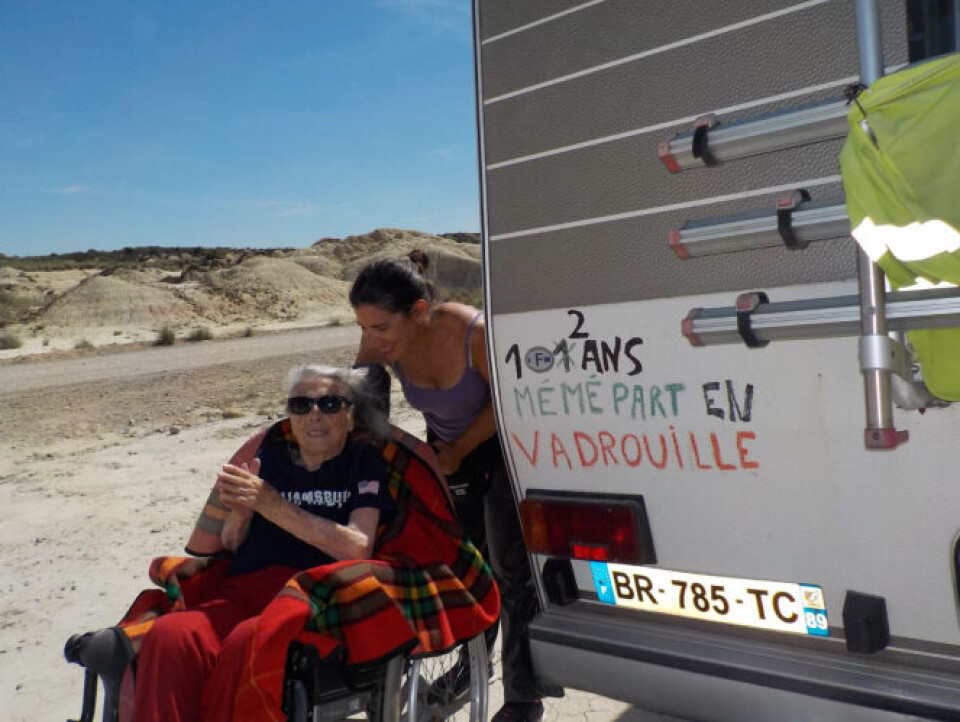
The elderly are excluded from society, treated as useless and spoken to like babies.
We do not like our parents to speak to us in that way, but this is exactly what we do to them when they reach old age.
One nursing home told us about a 97-year-old lady whose children refused to let her take the hot-air balloon trip she always dreamed of because it was ‘too dangerous’, but who asked her nevertheless to take a flight to Nice to visit them during the summer. (Laughs) That’s the irony of it.
I am fighting this attitude to give the elderly back their place in society, after having more or less excluded them, or implied that they were useless.
But there is also a generational problem.
We no longer know how to communicate with them and tell them that we still need them.
I saw this with my grandmother.
Mother/daughter and grandmother/granddaughter relationships are not the same.
I knew how to tell her when to stop because she was annoying me.
My mother would never have had the gall to speak to her like that.
I also think that at a certain age you have to be able to confront each other, explain things to each other, talk to each other even if there are differences.
Are you the proof that hope springs eternal?
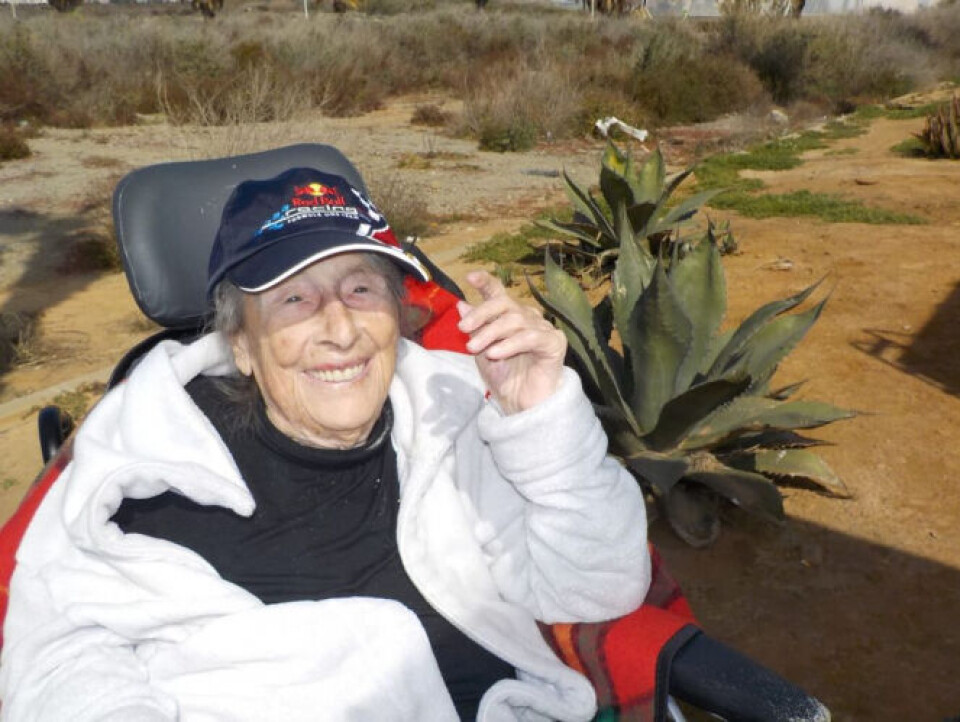
I think so.
I was criticised for having kept up hope, but it may be the combination of hope, love, patience and the desire to live life to the full that allowed her to die peacefully.
You should have seen her face when she went for that eternal sleep.
We should all go like that.
She looked like she was having a great dream.
This contrasted with my other grandmother, who died of Charcot’s disease and who suffered a martyr’s death by enduring intensive medication despite the fact that no treatment exists.
Your book came shortly before Les Fossoyeurs, an investigation of the sickening way in which the elderly in care homes have been treated, and which triggered a national debate. What role do you have to play in this unfolding situation?
The Fossoyeurs book was controversial but France moved on.
My book makes people dream, but once they have read the last page, they will move on.
The only way to change people’s views is to go out into the field and convince them that there is not just one way, that we have to give our time and put humanity back into our society.
We need this because not everyone can go away in a camper van or look after their parents and grandparents.
People want more humanity and communication.
We need more volunteers and more openness to the outside world.
This is a subject that affects the whole of society. It is not a religious or political issue.
Related articles
Why are so many people in France living to 100 now?
People in France are living longer in good health, study finds
























